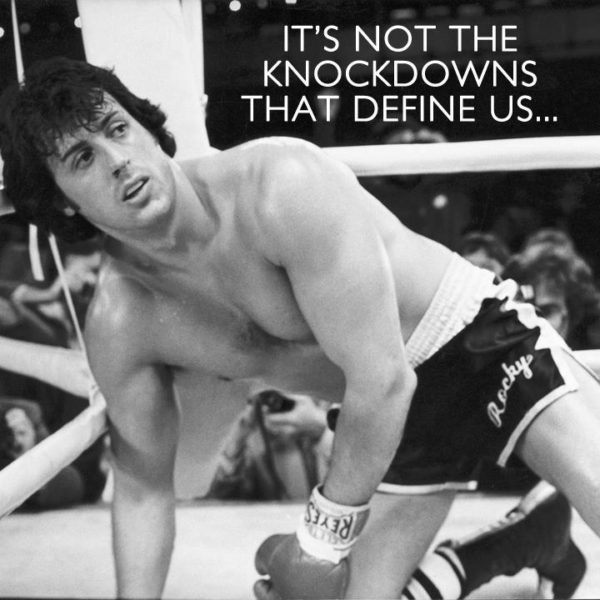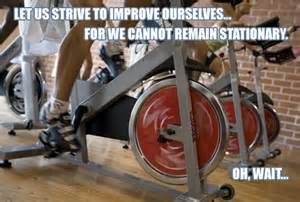(This is part 2 of a 4 part series)
Ken Sher is a Career & Life Coach. Contact him at shercoaching.com.
In my first blog about losing a job or needing to transition to a new job when you’re in the second half of your career, we saw the big picture impact of this major life event. Let’s face it, whether by your choice or someone else’s choice, when you’re out of work, especially in your late 40s or early 50s, it is a world rocking event! And like most such events, it can’t be addressed all at once. The reality is that time is needed to regroup and get back on your feet.
Now, sometimes we’re afforded more time than others. For example, if you received a severance package and will continue to get paid for a while, that can give you a little sense of relief and some breathing room. Other times, we may not be so lucky… and we have to really search for something positive to be thankful for! In either case, it’s important to begin facing your new reality.
Time to Regroup
First, it’s time to take a realistic inventory of your strengths and areas for development. What do you like to do? What are you good at? Where have you had your greatest success? Focus on the positive because the fact is that many times we start to question our own competence or we look to make our former employer the bad guy when neither of those perspectives will advance our cause. Instead, try the following:
1. If you’re taking all the blame for your job loss, rightly or wrongly, it’s time to move on… forgive yourself. Regardless of the reason you’re in the situation you’re in, you made it this far in your career because you have value to offer. It could be your work ethic, your technical skills or your ability to work well with others. It’s time to focus on your strengths and forgive yourself of your “weaknesses”. There’s a lot being written these days about compassion and mindfulness and one of the most impactful bits of learning for me is the concept of being kind to yourself just as you would with others. In other words, if a friend was in a similar situation to you, what would you say? I’m sure you would show compassion to them. You’d probably be supportive, encouraging and positive… why not treat yourself that way? Another valuable learning for me is about the importance of being present and finding things, in each moment, to be thankful for. Don’t focus on the negative, rather, be mindful of all the things you have to be happy for… like family, health or even just being able to enjoy a beautiful day. There really is a lot for us to appreciate, in our daily lives, if we just open ourselves up to see it.
Take a little time to get yourself together and begin thinking about the direction you want to take in your life from here. Do you want to get back into the field you were just in? Do you want to pursue a passion that you’ve been carrying around for years? Do you want to retreat into the mountains or travel the world in a way you never could before because you were tied down to your job? These are tough and enlightening questions to answer; and don’t beat yourself up if you don’t have all the answers. Truth be told, I was surprised how hard it was to uncover my passion. But, realistically, it had been buried so long under my career that it took awhile to uncover it. Now I know you may not feel you have the time to devote to this part of yourself, but it’s an important part of positively moving forward. This is such an important step that, ideally, you should really take as much time as you can to re-evaluate your life in order to determine what your next direction will be. But even putting a little time aside each day, just for you, will go a long way towards helping you find your way. The fact of the matter is that some of the most successful people in the world take time every day just to think… whether it’s meditation, during physical exercise or some kind of mindfulness exercise, it is a healthy and inspiring part of a successful life.
2. If you’re feeling negative, bitter or angry that’s okay… for a short time. We all feel that and, frankly, I think it’s healthy. No matter the situation, it is unfair and unwise to take all the blame on yourself or to internalize it when, in fact, there are always two sides to every story. Conversely, although it’s good to have a “bad guy” to blame, continuous negativity is not helpful either. Let’s face it, it feels good to vent and to get it all out… and you should. Personally, I wrote it all down on paper. Actually, it was on my computer and there were times I was pounding so hard I thought I would pop some letters right off of the key board. Then, I reread it a couple of times before deleting it both literally and figuratively.
3. Now, it was time to take inventory of myself. Time to start thinking positively and time to start planning my future. This mental transformation was actually started when I told a friend of mine I had lost my job. His response was “Congratulations!” At first I thought he was being sarcastic, but he followed by describing the endless possibilities I had in front of me now that I wasn’t tied down to my career. I have to admit, he had a point. As it turned out, my next 2 jobs were still on the same career path, but the realization that I could rewrite my story was a freeing feeling… and I eventually began to follow my passions which have led to a new path for me.
4. Keep some structure in your life and try to have, at least, one accomplishment every day. So, you’ve been working for many years and you’ve developed a pretty strong routine that has just been blown apart. It’s time to start a new routine and, as I wrote earlier, be kind to yourself. Searching for a job can be a long, difficult and testing time in your life. There will be many days when you feel like you spent the whole day, very busy, but you have nothing to show for it… except exhaustion and disappointment. The reality is that you probably did better than you think you did. One way to ensure this is to set realistic goals for yourself. Many of us used SMART (Specific, Measureable Action oriented, Results focused, Time bound) objectives in our business life and they can be helpful here as well. Start each day reviewing your plan off of this approach. What are your goals for the day? How many emails will you send? How many calls will you make? How many new contacts will you make through your existing contacts? The point is that you can be very detail oriented and you can measure your success each day and/or each week based on your short-term objectives and your daily success will not be based on whether you got a new job or not.
What about YOU!!!???
Believe it or not, there is a bigger issue here…you also need to take time away from your job search. It may come in the form of a morning meditation, it may be a daily exercise routine and it may include short 10 minute mind-clearing breaks throughout the day. Plan time in for yourself because doing this is critical to keeping focused and energized on your new life. It’s also part of the healing process from the original job loss and the temporary roadblocks you will hit in your new job search. If you don’t plan for it, it either won’t happen, you’ll feel guilty about taking time and it likely won’t be an appropriate amount of time (i.e too much or too little). Let’s face it, you will likely get a few rejections before you land your new job and that’s just the way it is. Taking some time for yourself will help you keep a clear and steady outlook; and remember, the beauty of the job search is that you only need one good job offer to move to the next stage of your life.
Of course you’re focused on getting that next job and making sure you provide adequately for your loved ones and I know the above considerations will help get you there. But what about you as a person? Now that you’re out of work, do you also feel like you’ve lost your identity? I recently read an article by Isaac Morehouse, founder and CEO of Praxis and his perspective is that there is more to every one of us than just our job or career. Mr. Morehouse writes that when he meets someone, “…rather than asking what do you do, he asks, “What’s your story?” He explains, “Your story is fun, entertaining, unexpected, and lively. It’s the narrative arc of your life, your motivations, your goals, what wakes you up in the morning, and why you do what you do. It’s not a summary of past accomplishments or even current activities.” He challenges the status quo and asks what is more interesting or compelling, someone who says “I’m a salesperson” or someone who says “I’m the father of 3 who is showing my kids how to impact the world in a positive way and I’m helping people better their situation at the same time”? Whatever the next stage of your life brings you, don’t define yourself by your job, define yourself by telling your story and what really is important to you. The old cliché is true… don’t live to work…work to live!
Part 3 of this 4 part series is entitled: “Survive and thrive after a job loss when you’re 50+/- years old: Finding your way to a better life” will be published shortly. Please feel free to share this with anyone you think might benefit from knowing that as bad as a job loss or feeling stuck in a career is, there is still realistic hope for an improved situation and a better life.
Ken Sher is a Career and Life Coach who focuses on the whole person when helping them with professional or personal issues they are trying to manage. If you would like to reach out to Ken, please call him at (215) 262-0528 or visit his web site at SherCoaching.com




